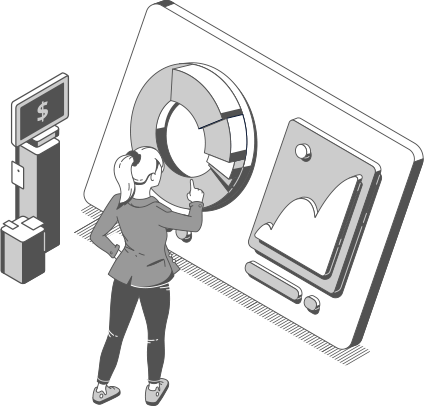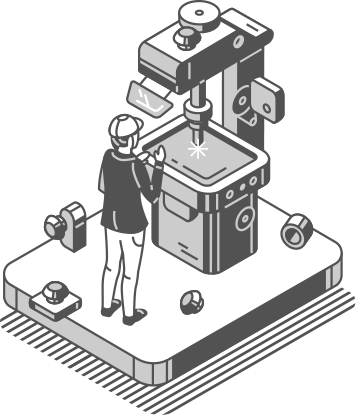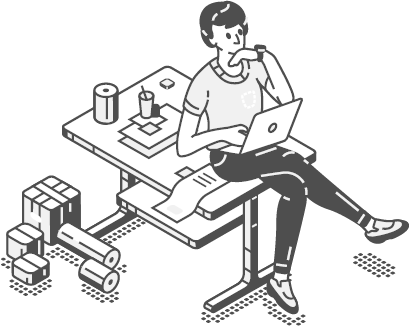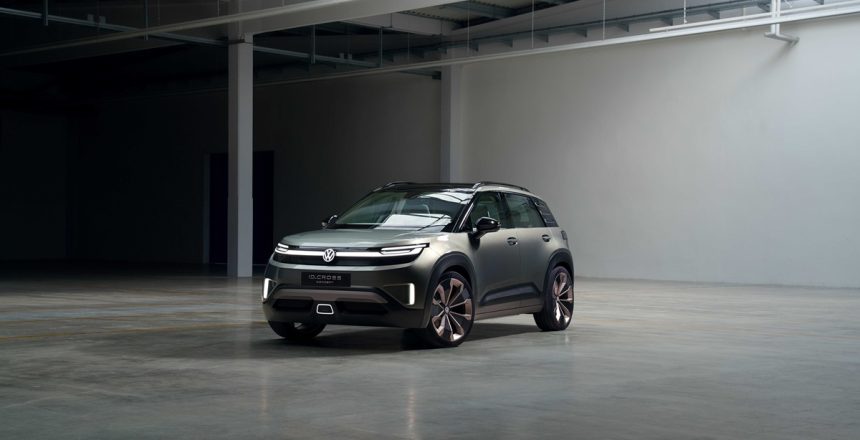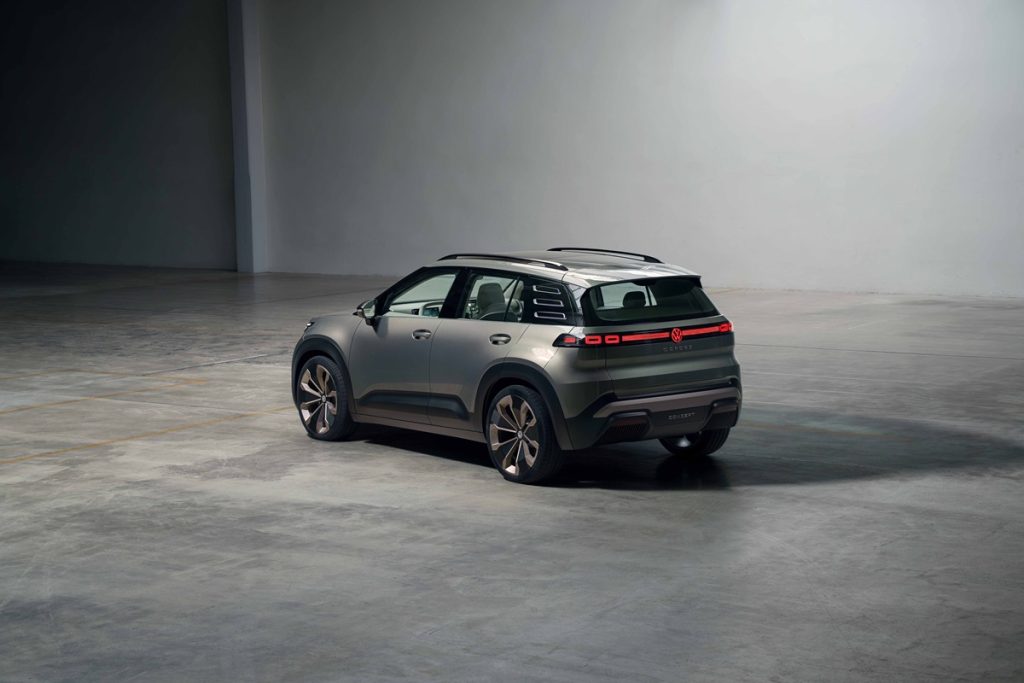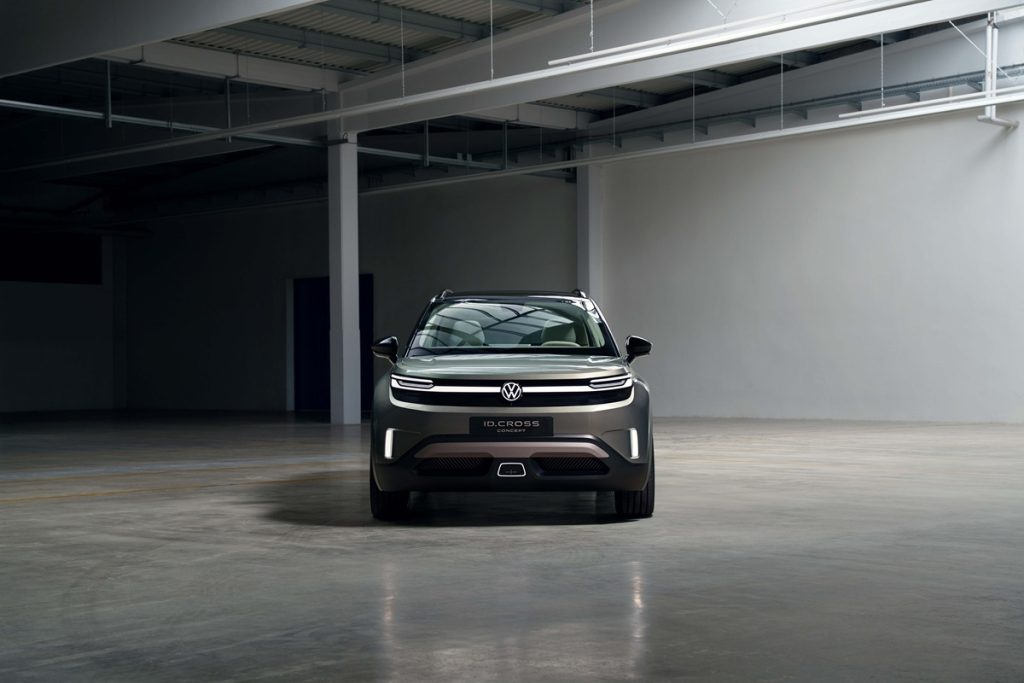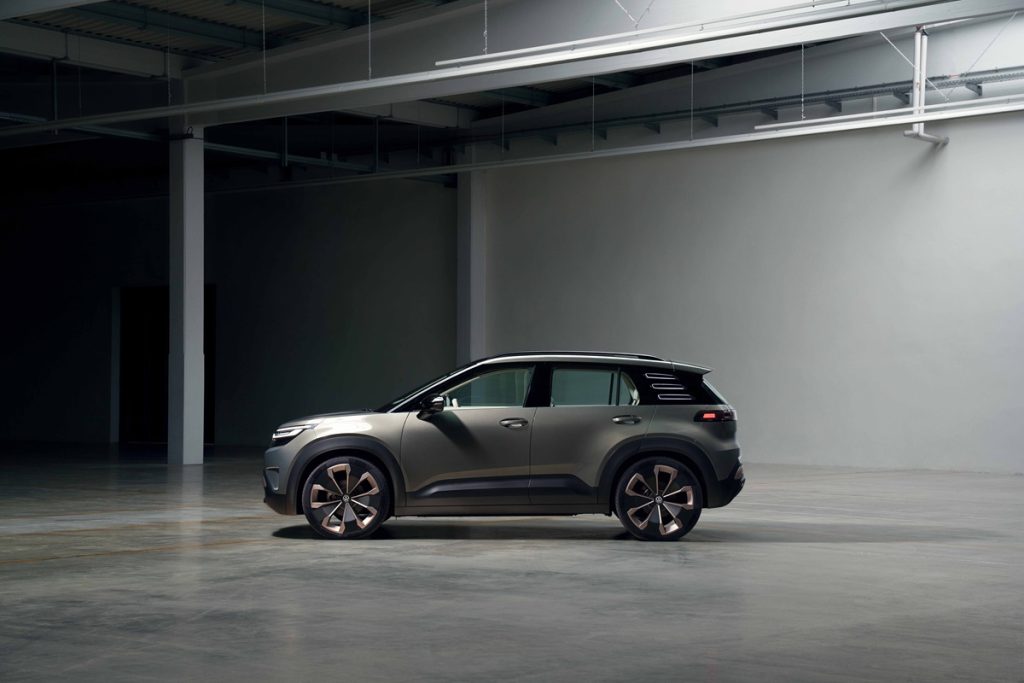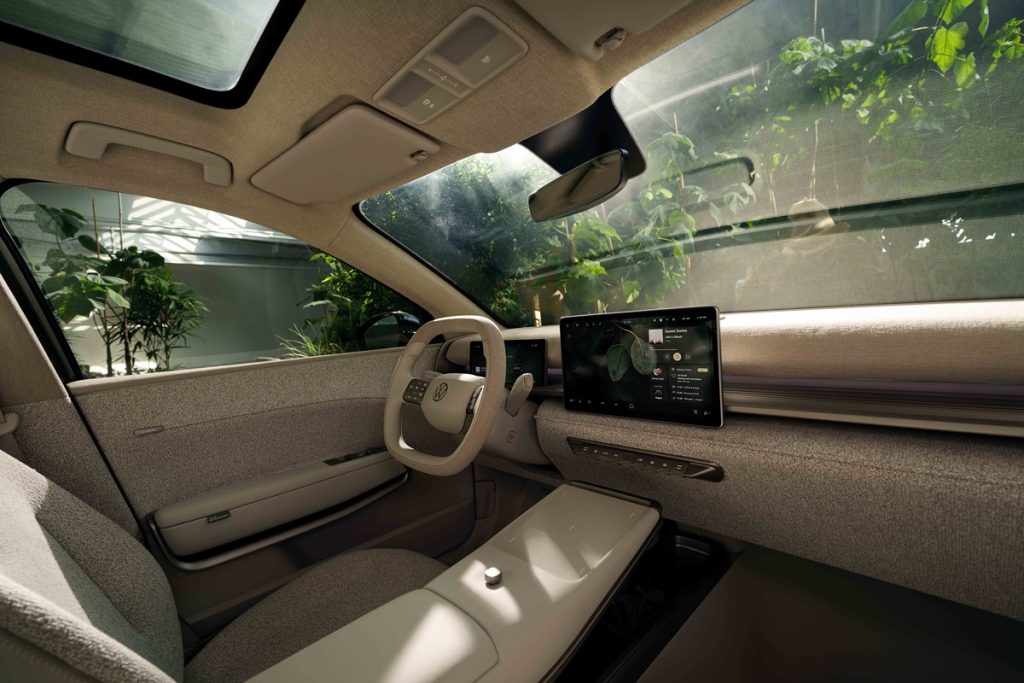Volkswagen Navarra has confirmed that the ID. Cross, a 100% electric compact SUV, will be the second new-generation model to be assembled at its Landaben plant from 2026 onwards. This vehicle joins the Skoda Epiq, recently announced as the first electric car to be produced by the Navarra factory, reinforcing the region’s role in the Volkswagen Group’s electrification strategy.
The ID. Cross was unveiled as a prototype at the IAA Motor Show in Munich and is set to become one of the pillars of the German brand’s electric range in Europe. Built on the MEB+ modular platform, this model will offer a range of up to 420 kilometres WLTP, a 211 hp engine and a revamped look that debuts Volkswagen’s new ‘Pure Positive’ design language.
With dimensions similar to the current T-Cross (4.16 metres long and 1.83 metres wide), the ID. Cross is designed for both urban and family use. Its interior stands out for its use of space, with a 450-litre boot and an additional 25-litre ‘frunk’, as well as the incorporation of new comfort and driver assistance technologies.
The arrival of this SUV is part of the electric offensive of the Brand Group Core (Volkswagen, Skoda, Seat, Cupra and Volkswagen Commercial Vehicles), which plans to launch several models in the entry-level segment on the European market from 2026 onwards.
At the same time, the Landaben plant will also produce the Skoda Epiq, a 4.1-metre electric crossover with a starting price of around €25,000, which is also scheduled to go into production in 2026. With these two models, Navarre is consolidating its position as one of the group’s strategic hubs for electrification, strengthening its industrial future and securing jobs at the factory.
The double assignment is a boost for the Navarra plant, which will not only continue to be key to the production of high-volume urban vehicles, but will also take a decisive step in the transition to electric mobility in Europe.
Recently, in a conversation with Invest in Navarra, the president of the Landaben plant, Michael Hobusch, announced that Volkswagen Navarra’s electrification project is progressing as planned and that the €1 billion investment will enable the production of two new electric models from 2026 onwards. He explained that the process combines technological innovation, training of local talent and public-private collaboration as its fundamental pillars.
Hobusch emphasised that Navarra was chosen for its high productivity, quality and specialisation in compact and urban vehicles, as well as for the powerful automotive supply chain ecosystem that exists in the region. He also highlighted the role of the F3 project and PERTE VEC in this process, as well as the support of the Government of Navarra and Sodena, which has enabled the plant to be at the forefront of sustainable mobility and in a position to become a European benchmark in electrification.
A STRONG INDUSTRY READY FOR THE ELECTRIC TRANSITION
The automotive sector in Navarre plays a crucial role in the regional economy, contributing around 25% of industrial GDP, equivalent to 6% of the region’s total GDP. With a business fabric made up of 120 companies and a turnover of 6,500 million euros, this industry generates direct employment for some 13,000 people, representing 4.5% of total employment in the region. It also leads exports in Navarre, accounting for 46% of exported goods, making it the main export engine.
Its dynamism is reflected in the strong presence of first- and second-tier supplier companies, many of them multinationals, which have been able to adapt to the requirements of national and international manufacturers. Thus, more than 65 % of industrial activity is concentrated in the production of components related to transmission, powertrain and vehicle interiors. This growth has been largely driven by Volkswagen Navarra, which leads in terms of both employment and production capacity, with more than 4,600 workers at its Landaben factory.
For its part, the Automotive Cluster of Navarre (ACAN), founded in 2011, brings together most of the companies in the sector and acts as a catalyst for competitiveness. Its aim is to consolidate Navarre as a benchmark region in the automotive sector, fostering cooperation between the different players in the value chain. This initiative strengthens the regional positioning in a key sector for economic and industrial development.
For more information on the important role that the automotive industry plays in the economy of Navarre and the possibilities it offers for attracting new investment and talent to the region, please click on the following link.
Source: diariodenavarra.es
